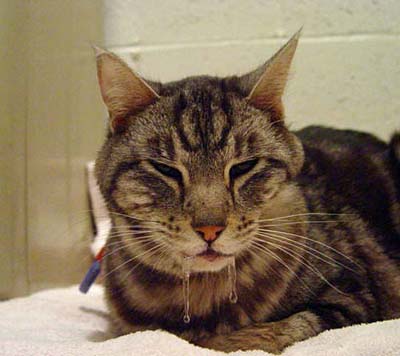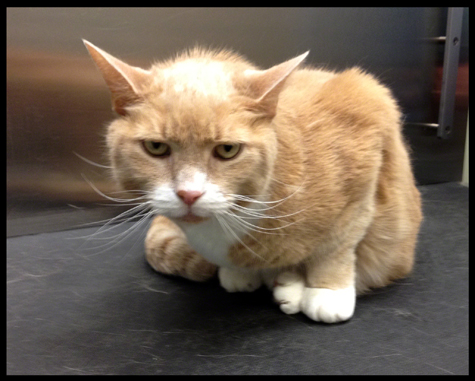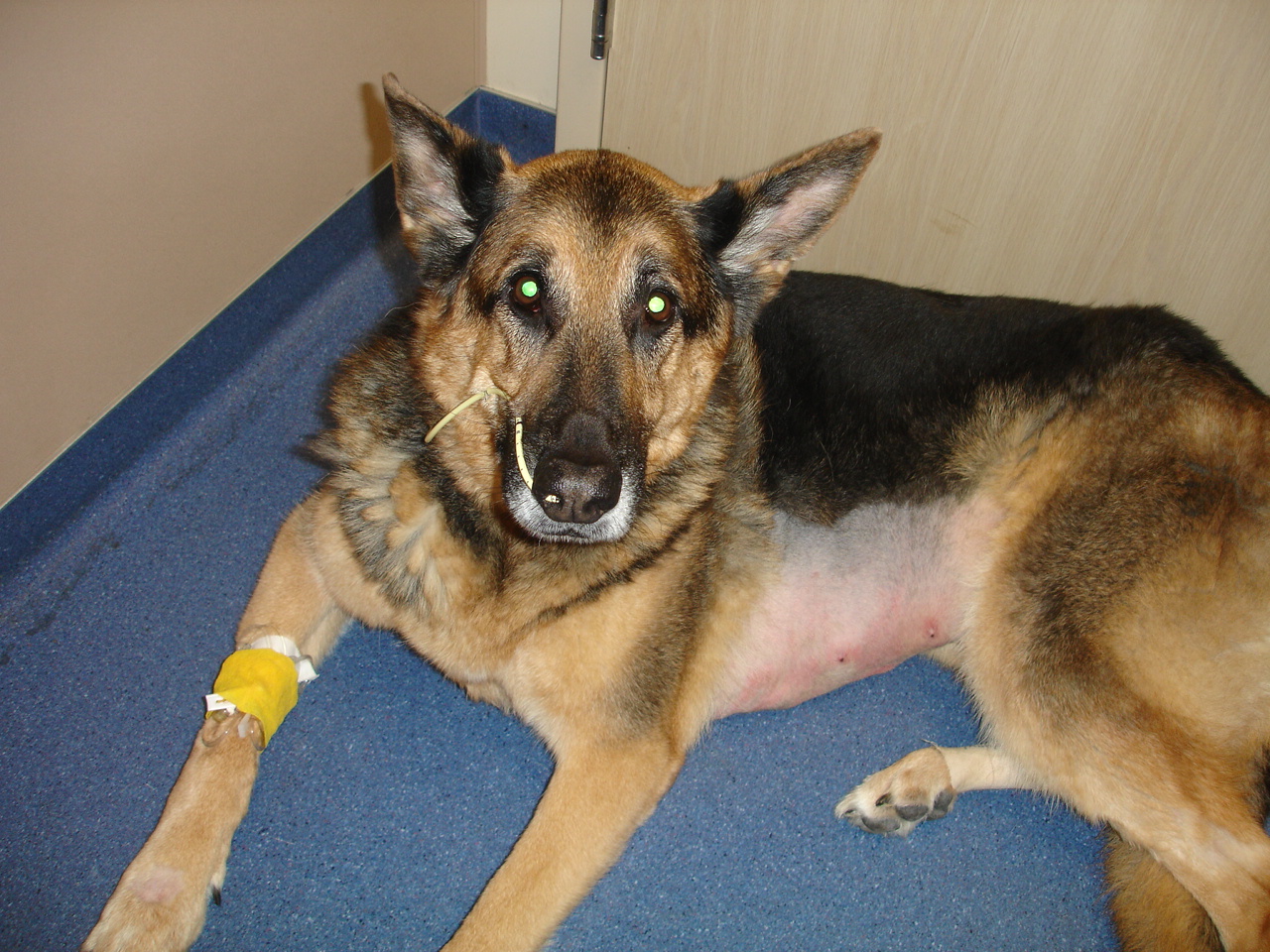On an almost daily basis I have the privilege of consulting with families whose dog or cat isn’t eating well (or at all). Sometimes the pet is also vomiting, but often the only concern for the family is the pet’s lack of appetite. When I obtain a complete patient history, families report they have tried multiple types of ready-made foods to entice their fur baby; many have even cooked special homemade meals only to have their pets sniff or lick the food and then turn away from the food bowl. Inevitably pet parents fail to recognize what their pet is telling them with this behavior, so I’ve written this blog post to shed some light on the topic of nausea in dogs and cats.
Clinical signs of nausea
Approaching a food dish to sniff and/or lick only to then walk away from the food dish is, perhaps, the most underappreciated sign of nausea in dogs and cats. Many ill pets will initially eat a food but when that meal makes them feel ill, they subsequently refuse to eat future offerings of that food. When a different delectable is offered, they’ll repeat this behavior.
Other common signs that a dog or cat is possibly nauseated include:
- Reduced or complete loss of appetite
- Excessive drooling
- Lip licking/smacking
- Bruxism (teeth grinding) – see video
- Increased vocalization
- Excessive swallowing
- Pawing at their mouth – see video
- Assuming a hunched body posture
- Lethargy and increased reclusiveness
- Diarrhea
- Shivering
- Vomiting / dry heaving
Causes of nausea
There are many causes of nausea in dogs and cats, and it may be helpful to think of them in two main categories: diseases of the gastrointestinal tract (GIT) and diseases outside of the GIT. Common diseases of the GIT that can cause chronic nausea include:
- Inflammatory bowel disease (IBD)
- Cancer (i.e.: lymphoma, adenocarcinoma)
- Infections diseases (fungi, protozoa, intestinal parasites)
- Food intolerance
- Motility disorders
- Partial obstructions
- Gastrointestinal ulceration
- Severe constipation / obstipation
Diseases outside the GIT that are frequently implicated in chronic intermittent vomiting in cats are:
- Pancreatitis
- Chronic kidney disease
- Hyperthyroidism in cats – see http://criticalcaredvm.com/understanding-feline-hyperthyroidism/)
- Inflammatory liver disease
- Hepatic lipidosis in cats (aka: fatty liver syndrome)
- Central nervous system disease
- Lung disease
- Diaphragmatic hernia
- Heartworm disease
Determining the cause of chronic nausea can be challenging, and often the counsel of a board-certified veterinary internal medicine specialist is invaluable!
Nutritional support is important!
Even if a pet is nauseated and will not eat, nutritional support remains of paramount importance for maximizing a successful outcome, and should be implemented as soon as possible. Prolonged periods (>48 hours) without food can lead to additional complications, for example the development of hepatic lipidosis (fatty liver syndrome) in cats. Force/coax feeding is never recommended because doing so readily promotes the development of food aversion.
Think about it this way. If you were nauseated, would you want someone shoving food in your mouth? No. Not only would you not like it, you would likely never want to have that food again either! The use of a temporary supplemental feeding tube to provide adequate nutrition for a patient who is not quite ready to eat on his/her own is well tolerated and can truly be lifesaving.
The take-away message
Nausea is a relatively common clinical issue for dogs and cats, but is often under-recognized by pet parents and sometimes even by primary care veterinarians. Be aware of the subtle ways your fur baby may be telling you that s/he is nauseated, and seek medical attention for her/him as soon as possible. Consultation with a board-certified veterinary internal medicine can often be invaluable for helping determine the cause of your pet’s nausea in a cost-effective manner.
To find a board-certified veterinary internal medicine specialist, please visit the American College of Veterinary Internal Medicine.
To find a board-certified veterinary emergency and critical care specialist, please visit the American College of Veterinary Emergency and Critical Care.
Wishing you wet-nosed hugs,
cgb




